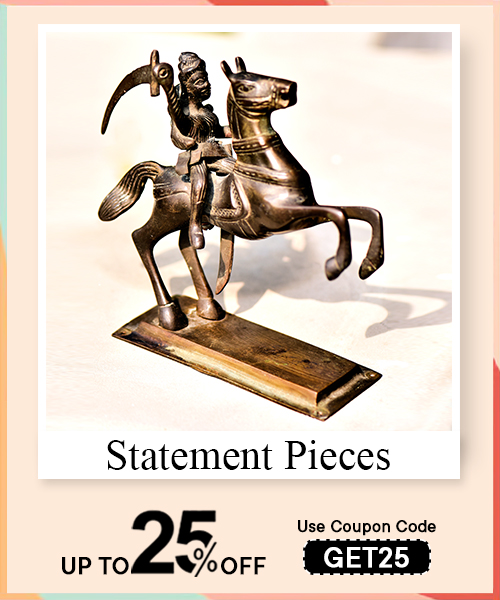Independence Day in India is celebrated annually on August 15 to commemorate the country's independence from British rule in 1947. In India, it is a national holiday celebrated with great enthusiasm and pride by people all over the country. India's battle for independence from English imperialism was a long and laborious excursion set apart by various fights, fomentations, and penances. India's Independence Day celebration is a day to remember the freedom fighters' sacrifices and to renew our commitment to upholding democracy, liberty, and equality. It has a significant historical significance.
Before its Independence on August 15, 1947, India was ruled as a British colony for nearly two centuries. In the early 17th century, the British East India Company began trading in India and gradually increased its control over various regions. The British Crown took direct control of the nation in the middle of the 19th century, succeeding the East India Company.
India's battle started vigorously in the mid-twentieth with different pioneers and associations sending off fights and fomentations contrary to English rule. The freedom movement was largely organised and coordinated by the Indian National Congress, founded in 1885. One of the most well-known leaders of the independence movement, Mahatma Gandhi, advocated civil disobedience and nonviolent resistance as ways to achieve independence.
After World War II, as international pressure mounted on Britain to grant independence to its colonies and the British Empire began to weaken, the struggle for independence gained momentum. In 1947, the English government passed the Indian Autonomy Act, which allowed freedom to India and Pakistan. On August 15, 1947, Jawaharlal Nehru, India's first Prime Minister, raised the nation's flag on the Red Fort in Delhi to mark the end of British colonial rule and the beginning of a new era.
Read More :REMEMBERING RABINDRANATH TAGORE — BIRTH ANNIVERSARY
India celebrates Independence Day with a great deal of patriotic fervour. A parade of cultural and military floats follows the raising of the flag and singing of the national anthem to begin the day. The State leader of India conveys a discourse to the country from the Red Post, illustrating the accomplishments of the previous year and the difficulties ahead. Several Quotes on Independence Day are circulated on social media platforms. Quizzes are also conducted on Independence Day in Schools, and prizes are distributed to the winners.
To commemorate the occasion, governments, schools, and colleges all over the country hold numerous cultural competitions and events to celebrate the occasion. Also, students and teachers give speeches on Independence Day in Hindi, English and their regional languages. Decorate their homes and streets with the national flag and other patriotic symbols in traditional garb. Everyone wishes a Happy Independence Day to each other. The celebrations also include entertainment like fireworks and other forms of entertainment. 76th Independence Day will also be celebrated as grandly as the 75th Independence Day.

India's Independence Day is significant to the nation and its people. It is a day to praise the hard-won independence from the frontier rule and to recall the struggles of the political dissidents who made it conceivable. The day also serves to reaffirm our commitment to upholding the independence movement's core values of democracy, liberty, and equality.
The tradition of autonomy development keeps on rousing individuals across India and the world. The peaceful opposition and common noncompliance upheld by Mahatma Gandhi keeps on being viewed as a useful asset for social and political change. India's political establishment continues to be dominated by the Indian National Congress, which was instrumental in the independence movement.
India's Independence Day is significant and national pride for the nation and its citizens. It denotes the finish of a long and strenuous battle for independence from the frontier rule and the start of another period of expectation and commitment for India. Remember the freedom fighters' sacrifices and renew our commitment to upholding their fought-for values of democracy, liberty, and equality as we commemorate this day.
Despite the significant progress that India has made since achieving independence, the nation still faces numerous obstacles and opportunities. Neediness, imbalance, debasement, and collective strains are a portion of the significant issues that keep on tormenting the country. However, India's vibrant democracy, diverse culture, and entrepreneurial spirit provide ample growth and development opportunities.
India has a large consumer market and a young and dynamic workforce, making it one of the world's fastest-growing economies. The nation has taken critical steps in different fields, including innovation, space investigation, and environmentally friendly power. The world is still captivated by India's soft power, which is reflected in its films, music, cuisine, and spiritual traditions.
India's Independence Day is a good time to think about the challenges and opportunities ahead and work toward creating a more prosperous, sustainable, and inclusive future for the nation and its people.
Read More:BABASAHEB AMBEDKAR JAYANTI - WHO WAS DR AMBEDKAR, HISTORY AND SIGNIFICANCE
India's Independence Day also has international significance because it marked the end of British colonialism in one of the world's largest and most diverse nations. India's struggle for independence paved the way for decolonising other parts of the world. It inspired a lot of other countries in Asia and Africa to start their freedom movements.
In addition, India's independence marked the beginning of a new era in Indo-British relations, with the two nations gradually establishing a more equitable and beneficial partnership for both parties. India and the United Kingdom have strong ties today in trade, education, culture, defence, and other areas.
Independence Day in India celebrates democracy, freedom, and the Indian people's enduring spirit. This day honours the freedom fighters whose deeds made it possible and reaffirm our commitment to upholding democracy, liberty, and equality.
India's independence resulted from years of protests, sacrifices, and struggles, not a one-time event. Various demonstrations of courage set apart the opportunity development, for example, the Salt Satyagraha, driven by Mahatma Gandhi, the Quit India movement, and the Indian Public Armed Force, driven by Subhash Chandra Bose. The freedom fighters were subjected to imprisonment, torture, and even death in their struggle for independence.
Recollecting the past isn't simply essential to respect the penances of the political dissidents but also to gain understanding from their encounters. The upsides of peacefulness, common insubordination, and civil rights that were vital to the freedom development remain pertinent today, as India and the world face new difficulties and potentially open doors.
In addition, they recollecting the past aids in developing national identity and pride. During Independence Day celebrations, people across India can celebrate their shared history, culture, and values.
As India pushes ahead, it faces various difficulties and opens its doors. Inequality, communal tensions, and poverty are still major issues that must be addressed. However, India's vibrant democracy, diverse culture, and entrepreneurial spirit provide ample growth and development opportunities.
It is essential to emphasise inclusive and sustainable development if India is to build a better future. This includes addressing issues like corruption, gender inequality, climate change and investing in education, healthcare, infrastructure, and renewable energy.
A culture of innovation and entrepreneurship must also be fostered, which can assist in job creation, economic expansion, and social change. For example, India's technology industry has become a global leader in recent years and has the potential to change healthcare, education, and agriculture.
India's Independence Day is a day to commend the nation's hard-won independence from pioneer rule and to re-establish our obligation to maintain the upsides of a vote-based system, freedom, and equity.
Read More:INDIA'S REPUBLIC DAY 2023 - ALL YOU NEED TO KNOW
Individuals, communities, and the government must work together to achieve common objectives if India has a better future. India has the potential to build a more prosperous, inclusive, and sustainable future for itself and the world by making investments in education, healthcare, infrastructure, and innovation and upholding the principles of democracy, liberty, and equality.
Writing an effective speech for Independence Day necessitates carefully preparing and considering the audience. You can make a speech for 76th Independence Day (i.e., on 15th August) that will be remembered and have an impact with the help of the following advice. You should enlighten people about the difference between Independence Day and Republic Day.
Make sure your opening grabs the audience's attention and is powerful before beginning your speech. You could use relevant Independence Day quotes, anecdotes, or statistics to pique their interest.
Start with a quote related to your speech's theme or message. It could be a quote from a well-known person or one from a less well-known person that resonates with your audience.
A good way to get people's attention is to ask a question that makes the audience think differently or piques their interest.
Share a personal account: If you can relate your topic to a personal story, you can connect with your audience and make your message more relatable.
An amusing anecdote or well-timed joke can help you connect with your audience and make them more open to your message.
Start with a surprising or unexpected statistic or fact for the audience. It helps emphasize the significance of your message and creates a sense of urgency.
Read More: CELEBRATING INDIA'S INDEPENDENCE
Addressing the significance of Independence Day is essential to crafting a powerful speech. Also, you can address how the 75th Independence Day was celebrated. To interface with the crowd and ingrain a feeling of satisfaction and nationalism, underscoring Freedom Day's verifiable and social meaning is fundamental.
You can start by discussing the verifiable setting of India's battle for freedom from English rule to examine the meaning of Autonomy Day. You can talk about the sacrifices the people who fought for freedom made, their vision of a free India, and their struggle to shape India's identity.
You could also discuss how Independence Day affects society and the economy, highlighting India's progress since its independence. Talk about India's achievements in various fields, such as science, innovation, and culture, as well as its dedication to the global community.
Also, you can talk about Autonomy Day's themes of opportunity, a majority-rule government, and equity, as well as how these themes have shaped the country's personality. Underline the occupation of Happy Independence Day Day in granting a sensation of public pride and fortitude among Indians.
You can interface with the crowd more profoundly and motivate them to observe Freedom Day with satisfaction and excitement by tending to the meaning of the occasion.
Discuss India's development over time, its extensive cultural heritage, and the diverse achievements of its people. Talk about the various fields in which India has excelled and its progress toward becoming a developed nation.
Research India's significant achievements since its Independence Day before writing your speech. This remembers headways for innovation, economy, training, and social advancement.
Make your speech more compelling by including statistics and facts to back it up. You could, for instance, talk about how the Indian economy is expanding, how the literacy rate is rising, or how the country has contributed to science and technology.
India has a rich social legacy, so it's critical to feature the achievements of specialists, journalists, performers, and producers who have made huge commitments to the world.
India's political system is a source of pride for its people because it is the largest democracy in the world. You could talk about the country's peaceful power transfers, democratic processes that worked well, and policies that have improved people's lives.
In recent years, India has made significant progress in sports, particularly in cricket, hockey, badminton, and wrestling. You could talk about the country's accomplishments at international competitions or individual athletes who have made a name for themselves on the international stage.
Engage the audience by appealing to their patriotic feelings and using emotional language. Use tales and stories that move and propel individuals to pursue a superior future for the country.
Read More: JANMASHTAMI DECORATION IDEAS TO CELEBRATE THE SPECIAL DAY OF LADDU GOPAL
A concise speech should be quick. It should be concise, conveying a distinct message that the audience understands.
Plan and organize the most important points you want to make in your speech before you start writing it. You'll be able to stay on track and avoid rambling with this.
Stay true to your speech's main point or theme. Including only a few stories or issues not directly related to your main point is best.
In your speech, use language that is easy to understand and simple. Avoid using technical jargon or terms that could be used to confuse the audience.
Don't make the same point or story in your speech more than once. This could make your address sound stale and repetitive.
To facilitate a seamless transition from one point to the next, you can make use of transitional words like "in conclusion," "next," or "finally."
Your speech should end with a strong call to action that inspires the audience to work toward making the country a better place. Encourage them to contribute to the nation's development and make a difference in their communities.
You must practice and rehearse to ensure your Independence Day speech is powerful and memorable. How to practice and rehearse your address in the following ways:
Make content or a layout of your discourse. Put your concepts, main points, and supporting details down on paper. You can stay on track during your rehearsal with this clear structure.
Record yourself conveying the discourse and time yourself. This lets you see where to slow down or speed up. Make it a goal to keep your speech to the five to ten minutes allotted.
Rehearsing before a mirror can assist you with recognizing regions where you want to develop your non-verbal communication further, looks, and signals. Due to this, you'll come across as more assured and interested to your audience.
Practice your speech in front of friends and family. Inquire about their thoughts regarding your delivery, tone, and message. This will assist you in determining the areas of your speech that require improvement and refinement.
Listen to a recording of yourself giving the speech. You'll be able to see where you need to work on your diction, pronunciation, and tone with this information.
Rehearse with visual aids like slides or props if you plan to use them. Make sure you know how to use them well and that they make your speech better.
Rehearse in the setting where you will give your speech. You will be able to get a feel for the environment and adjust your delivery accordingly because of this.
Remember key points and quotes from your speech, even if you don't have to. This will assist you with conveying your discourse even more unhesitatingly and truly.
Read More: INDIA'S REPUBLIC DAY 2023
Remember the people you'll speak to when you write your speech. The language and tone of the discourse ought to be customized to the public and their assumptions. For example, if you're giving an independence day speech in Hindi, use the right words and vocabulary.
Prepare by the Independence Day celebration's theme and subject. Utilize applicable statements, realities, and information to help your contentions and give your discourse more enticing.
Even though it's important to talk about social and political issues, don't discuss controversial topics that might upset or divide the audience. Center around the positive parts of the nation's advancement and its true capacity for development.
Visual guides like pictures, recordings, or props can assist with upgrading the effect of your discourse. It can give your message a new dimension and help people remember it better.
Powerful correspondence is a two-way process. Engaging with the audience, asking for their feedback and opinions, and responding appropriately are all ways to practice active listening.
While speaking, look directly at your audience. You can use this to gauge how they respond and adjust your delivery if necessary.
Pay attention to your audience's body language. Do they nod in agreement, lean forward, or appear disinterested? Your tone and pace should reflect this.
Throughout your speech, ask questions to get the audience involved. They will remain invested in your message and engaged because of this.
To allow the audience to respond, pause after making a key point or sharing a personal story. This could be as praise, giggling, or gestures of arrangement.
Adjust your speech in response to feedback from the audience by being open to it. Take the time to respond thoughtfully to any question posed to you.
End your speech positively and uplifting, inspiring and motivating the audience. Use a memorable quote or call back to your opening to create a sense of closure.
Read More: HOW TO DECORATE YOUR TEMPLE THIS FESTIVE SEASON?
In conclusion, writing a powerful Independence Day speech requires careful planning, research, and practice. Address the significance of Independence Day, highlight the achievements of India, use emotional appeal, keep it concise, and end with a call to action. Tailor your speech to the audience, use visual aids, share personal stories, incorporate humor, practice active listening, and end on a high note. With these tips, you can create a memorable and impactful speech that inspires and motivates the audience.















